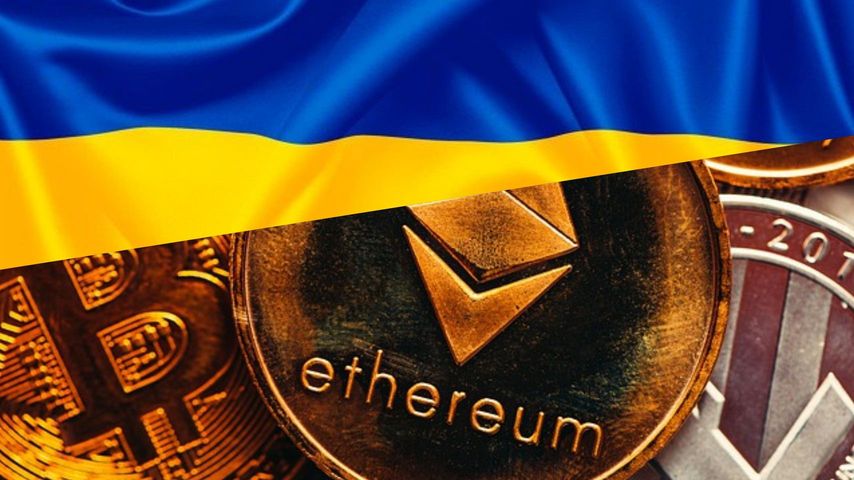NFT donations come to Ukraine’s aid
Ukraine has now also accepted NFT donations in order to financially aid their long-standing war with Russia.
Vice Prime Minister of Ukraine, Mykhailo Fedorov has tweeted that their government will now accept contributions in the form of non-fungible tokens or NFTs. The Ukrainian government has launched their official fund called “Aid for Ukraine” that accepts crypto donations and aid in form of fiat currency. With the recent extension to NFTs, Ukraine will be substantially assisted with respect to their defence and currency stability.
The donations largely help with Ukraine’s military expenses including weapons and also medical kits for those injured, both soldiers and civilians.
Ukraine continues to use crypto and NFTs to fund the two-month long ongoing Russia-Ukraine war. Federov, also the Minister of Digital Transformation of Ukraine, leads his Ministry to effectively follow through contributions made by donors around the world. Said Ministry also acts as the beneficiary organization for various NFT projects including Holy Water that supports local Ukrainian NFT artists. The Ministry has also launched its own NFT gallery in cognizance of the war.
Ukrainian expenses for the ongoing war totalled up to $45,103,538 by mid-April. The official fund that aids these costs are powered by Kuna and FTX. OpenSea has also seen NFT collections such as CryptoPunks, Mooncats and TIMEPieces by Time Magazine that have donated their proceeds directly to crypto wallet of Ukraine’s Ministry of Digital Transformation. These collections only accept Ethereum as their mode of payment. With the help of such NFT donations and BTC contributions, cryptocurrency has been a promising comfort for the war-struck country.
Ukraine to stabilize currency with limiting crypto purchases
In an attempt to keep the Ukrainian hryvnia stable, the Ukraine government will be restricting “unproductive capital outflows”. It is imposing restrictions on citizens in order to curb crypto purchases with local currency.
The National Bank of Ukraine (NBU) has said that citizens will now only be able to buy crypto using foreign currency. The upper limit on transactions will be constrained to a maximum of 100,000 Ukrainian hryvnia, that is, around $3400 USD a month. This will help prevent capital flight and help improve their currency’s stability during the war period. With the exodus of millions of Ukrainian citizens, it now falls on the government to secure their economic interests.
“Individuals will be able to buy assets that are directly convertible (exchanged) for cash and belong to quasi cash transactions, using only their own foreign currency.”
Quasi cash transactions mean any service transaction by a financial institution including money orders and wire transfers, that can be easily converted to cash. This will help to build up the country’s capital by restricting depletion via electronic wallets and forex accounts for traveller’s checks. However, a good percentage of Ukraine’s defence structure has been financed by cryptocurrency donations across the world, pushing President Volodymyr Zelensky to sign a law “On Virtual Assets” that legalizes crypto assets in the country. Read here for more on how Ukraine makes use of NFT and crypto donations as aid for refugees and the military.
“The National Bank of Ukraine clarified restrictions on cross-border operations of citizens in order to prevent unproductive outflow of capital from the country under martial law,” said the NBU in a statement.
Being a crypto-friendly nation, this pre-emptive action on behalf of the government and the central bank does come as a surprise but will ultimately help in strengthening their economic status.
Binance to issue crypto card for Ukrainian refugees

Binance, one of the globally leading crypto exchanges, has announced it will be launching a crypto card for Ukrainian refugees to make cryptocurrency transactions – in order to help with their struggles due to the displacement.
Refugees can use this crypto card to send and receive payments through the exchange platform. They will also be able to spend at retailers located in the European Economic Area or the EEA. NGOs Rotary and Palianytsia, along with European-wide Banking-as-a-Service platform Contis, are believed to have been working with Binance to provide these transactional amenities to the affected refugees.
In an added perquisite to the above, Binance will also be donating a stipend to Ukrainian refugees verified by NGOs, for 3 months. They will be paid 75 BUSD (or Binance USD) per month (for 3 months in total) adhering to the donation amount recommended by the United Nations High Commissioner for Refugees (UNHCR).
Cryptocurrency has been playing a major role not only as aid to Ukraine’s war struggles, but also as a significant form of transaction that carries out humanitarian activities. Crypto has been a boon in a philanthropic capacity due to its breezy nature of easy circulation that does away with institutional red-tape and in the process, transforming otherwise burdensome inter-country transactions into an effortless procedure. Since cryptocurrency needs minimal, if any, documents and governmental processes to be effectively dealt out, it becomes an integral tool to yield fast fiscal results.
Binance takes stand against Russian officials on account of ongoing war
Binance has also taken up measures to increase security of its Ukrainian users by blocking accounts of users who are tied to the Russian government.
Relatives of senior Kremlin officials have had their accounts shut down by the global crypto exchange as an attempt to safeguard transactional interests of Ukrainians. Ever since Russia started military action against Ukraine two months ago, crypto and other platforms have stood in support of Ukraine and have prevented Russian users from accessing all or most of their services. According to a report by Bloomberg, the Russians affected by Binance’s rigorous measures include Polina Kovaleva, the stepdaughter of foreign minister Sergei Lavrov and Elizaveta Peskova, daughter of President Putin’s spokesperson Dmitry Peskov.
Aiming to avert attempts by Russian officials to evade sanctions imposed by the United States Treasury Department, Binance has also blocked Kirill Malofeyev who is the son of a Russian oligarch and had prior charges in his name with regards to breaching sanctions. Chagri Poyraz, Binance’s global head of sanctions has spoken on how he feels proud being in a position to make a “real difference”.
The exchange subsequently banned several Russian officials and their family members from investing in crypto in the first place. On the 21st of April, they also implemented restrictions on accounts that held more than 10,000 euros, that will work to curb trading via these accounts. Binance has always been inclined to comply with said sanctions but they refuse to completely freeze millions of Russian user accounts with no prior charges. Unequivocally imposing limitations on such accounts may lead to unnecessary distress for those citizens who are not involved with the war at all.
Unlike Ukraine, the Russian government is not crypto-friendly at all – despite major officials and oligarchs tangled with BTC investments and other crypto transactions on a global level.





